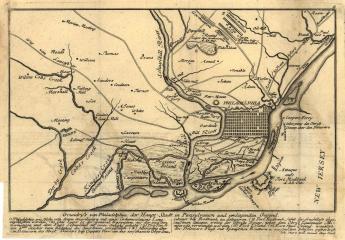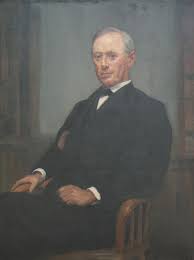Related Topics
Colonial Philadelphia (Pre- 1776)
 It's surprising to most Americans to learn the American Revolution was not the beginning, but almost half-way through the European settlement. And before the Revolution, there were thousands of years of settlement by non-European tribes. We know more about non-European settlers than we did fifty years ago, but records are still very poor or non-existent, and not likely to catch up very rapidly. History will begin in 1492 for a very long time. Long before that, it isn't history, it's anthropology.
It's surprising to most Americans to learn the American Revolution was not the beginning, but almost half-way through the European settlement. And before the Revolution, there were thousands of years of settlement by non-European tribes. We know more about non-European settlers than we did fifty years ago, but records are still very poor or non-existent, and not likely to catch up very rapidly. History will begin in 1492 for a very long time. Long before that, it isn't history, it's anthropology.
Quakers: The Society of Friends
According to an old Quaker joke, the Holy Trinity consists of the fatherhood of God, the brotherhood of man, and the neighborhood of Philadelphia.
Favorite Reflections
 In no particular order, here are the author's own favorites.
In no particular order, here are the author's own favorites.
Pacifist Pennsylvania, Invaded Many Times
Pennsylvania was founded as a pacifist utopia, and currently regards itself as protected by vast oceans. But Pennsylvania has been seriously invaded at least six times.
French Philadelphia
French Philadelphia
Quaker Values and Service
New topic 2016-12-03 20:19:53 description
Politics of the French and Indian War

|
| Isaac Sharpless |
In the European view, the French and Indian War was a mere skirmish in the many-year conflict between France and England. But the Atlantic is a wide ocean. The local Pennsylvania politics of that war concern the land-hungry settlers striving for Indian lands, the Quaker Assembly doing its best to maintain William Penn's formula for peace ("No settlements without first buying the land from the Indians."), and William Penn's far-from-idealistic Anglican sons, focused on profit from a land rush. Western Pennsylvania belonged to the Delaware tribe, but the Delawares were subject to the Iroquois nation. The year is 1754. The following pro-Quaker description is given by Isaac Sharpless, president of the Quaker Haverford College between 1887 and 1917 (Political Leaders of Colonial Pennsylvania,

|
| Isaac Norris |
Isaac Norris was appointed to another Albany treaty with the Indians in 1754. The commission consisted of John Penn and Richard Peters representing the Proprietors, and Benjamin Franklin and himself, the Assembly. Indian relations were becoming difficult. The Five Nations still claimed the right to the ownership of Pennsylvania and insisted that no sale of land by the Delawares was permissible. In an evil hour, the government of Pennsylvania recognized this claim and this Albany meeting was for the purpose of effecting a purchase. By methods that were more or less unfair, taking advantage of the Indian ignorance of geography, they bought for 400 pounds all of southwestern Pennsylvania. When the Delawares found their land had been sold without their consent, they threw off the Iroquois yoke, joined the French, defeated Braddock's army a year later and for the first time in the history of the Colony the horrors of Indian warfare were known on the frontiers.
Although Sharpless goes directly to the unvarnished truth of the situation, he reveals the depth of his bitterness by openly discarding Franklin's cover story about being in Albany to propose political unity among the British colonies.
It was on this expedition that Franklin presented to his fellow delegates his plan for a union of the Colonies, of course in subordination to the British Crown which was a precursor of the final union in Revolutionary days. Sixty years earlier William Penn had proposed a somewhat similar scheme.
The war came, French intrigue and the unwisdom of the Executive branch of the government of the Province (the Penns) drove the Indians, who for seventy-three years had been friendly, into the warpath. Cries came in from the frontiers of homesteads burnt, men shot at their plows, women, and children scalped or carried into horrible captivity, and a growing sentiment among the red men that the French were the stronger and that the English were to be driven into the sea.
Originally published: Wednesday, June 21, 2006; most-recently modified: Friday, May 31, 2019